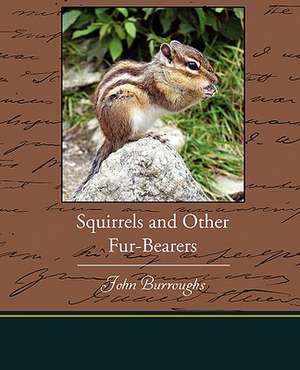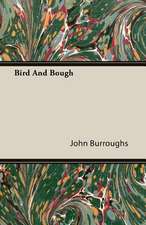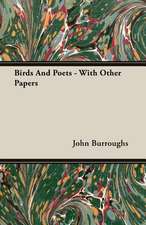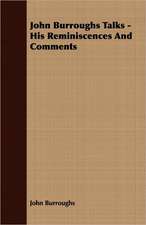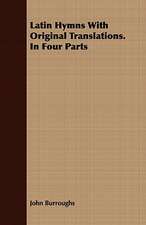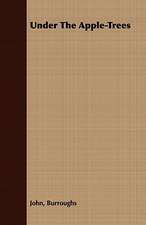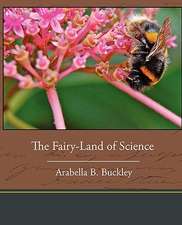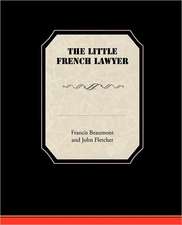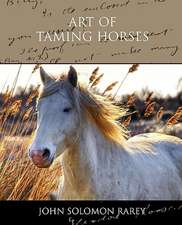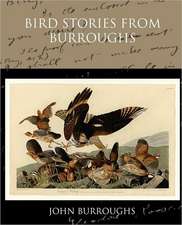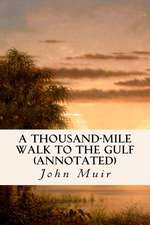Squirrels and Other Fur-Bearers
Autor John Burroughsen Limba Engleză Paperback – 2 aug 2009
| Toate formatele și edițiile | Preț | Express |
|---|---|---|
| Paperback (4) | 47.23 lei 3-5 săpt. | |
| CREATESPACE – | 47.23 lei 3-5 săpt. | |
| Yesterday's Classics – 28 feb 2006 | 74.06 lei 6-8 săpt. | |
| Book Jungle – 2 aug 2009 | 83.57 lei 6-8 săpt. | |
| LIGHTNING SOURCE INC – 26 mai 2018 | 113.32 lei 17-23 zile |
Preț: 83.57 lei
Nou
Puncte Express: 125
Preț estimativ în valută:
15.99€ • 16.74$ • 13.31£
15.99€ • 16.74$ • 13.31£
Carte tipărită la comandă
Livrare economică 31 martie-14 aprilie
Preluare comenzi: 021 569.72.76
Specificații
ISBN-13: 9781438523651
ISBN-10: 1438523653
Pagini: 88
Dimensiuni: 191 x 235 x 5 mm
Greutate: 0.17 kg
Ediția:09000
Editura: Book Jungle
ISBN-10: 1438523653
Pagini: 88
Dimensiuni: 191 x 235 x 5 mm
Greutate: 0.17 kg
Ediția:09000
Editura: Book Jungle
Notă biografică
Locusts And Wild Honey By John BurroughsThe honey-bee goes forth from the hive in spring like the dove from Noah's ark, and it is not till after many days that she brings back the olive leaf, which in this case is a pellet of golden pollen upon each hip, usually obtained from the alder or the swamp willow. In a country where maple sugar is made the bees get their first taste of sweet from the sap as it flows from the spiles, or as it dries and is condensed upon the sides of the buckets. They will sometimes, in their eagerness, come about the boiling-place and be overwhelmed by the steam and the smoke. But bees appear to be more eager for bread in the spring than for honey: their supply of this article, perhaps, does not keep as well as their stores of the latter hence fresh bread, in the shape of new pollen, is diligently sought for. My bees get their first supplies from the catkins of the willows. How quickly they find them out! If but one catkin opens anywhere within range, a bee is on hand that very hour to rifle it, and it is a most pleasing experience to stand near the hive some mild April day and see them come pouring in with their little baskets packed with this first fruitage of the spring. They will have new bread now they have been to mill in good earnest see their dusty coats, and the golden grist they bring home with them. When a bee brings pollen into the hive he advances to the cell in which it is to be deposited and kicks it off, as one might his overalls or rubber boots, making one foot help the other then he walks off without ever looking behind him another bee, one of the indoor hands, comes along and rams it down with his head and packs it into the cell, as the dairymaid packs butter into a firkin with a ladle. The first spring wild-flowers, whose sly faces among the dry leaves and rocks are so welcome, are rarely frequented by the bee. The anemone, the hepatica, the bloodroot, the arbutus, the numerous violets, the spring beauty, the corydalis, etc., woo all lovers of nature, but seldom woo the honey-loving bee. The arbutus, lying low and keeping green all winter, attains to perfume and honey, but only once have I seen it frequented by bees. The first honey is perhaps obtained from the flowers of the red maple and the golden willow. The latter sends forth a wild, delicious perfume. The sugar maple blooms a little later, and from its silken tassels a rich nectar is gathered.
